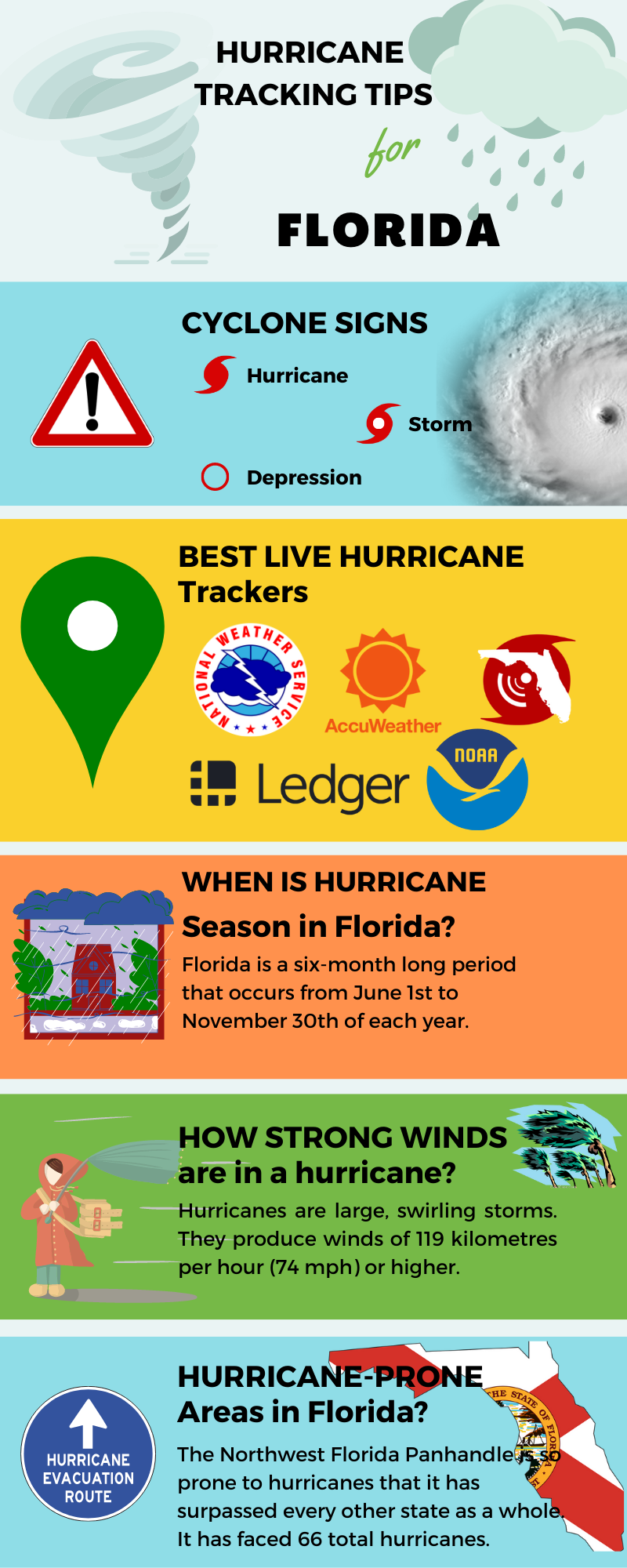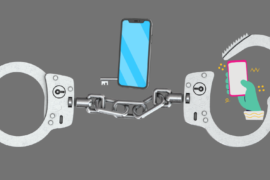Do you want to know if a storm is coming this weekend in Florida? Are you looking for a tropical storm tracker or a live hurricane tracker for the Atlantic Ocean? This guide will answer all your queries by listing the best hurricane tracker in Florida with excellent, accurate properties.
Hurricane Reason in Florida
Although hurricane season in the Atlantic starts on the 1st of June and ends on the 30th of November, things have changed in the past few years. Indeed, because of global warming, tropical storms or hurricanes in Florida begin in the middle of May. August and September are considered the most vulnerable months for anyone who needs a live hurricane tracker in Florida.
5 The Best Hurricane Tracker in Florida
Florida is the most vulnerable state to hurricanes. Since 1851, it has experienced 120 major hurricanes among the 301 hurricanes in the United States. Here are the top live hurricane trackers for Florida.
Here we go:
1. NOAA — High Authority Hurricane Tracker in Florida
The National Ocean and Atmospheric Administration (NOAA) is an ideal platform for tracking hurricanes in the Atlantic Ocean. This high authority platform works under the parent organization National Centers for Environmental Prediction (NCEP). So, their predictions for weather, climate, and ocean changes are considered more authentic.
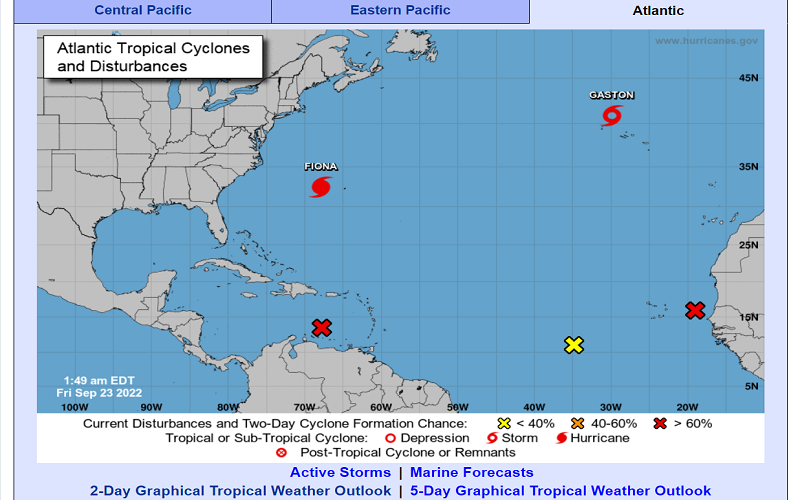
Here is the guide to tracking Hurricanes for Florida through the NOAA website:
2. The Ledger
It is another credible hurricane watch for Florida. The Ledger is a Lakeland-based newspaper that was introduced in 1924. The Ledge’s official website also has a dedicated page under the storm tracker category titled ‘Active Storms in Atlantic’.
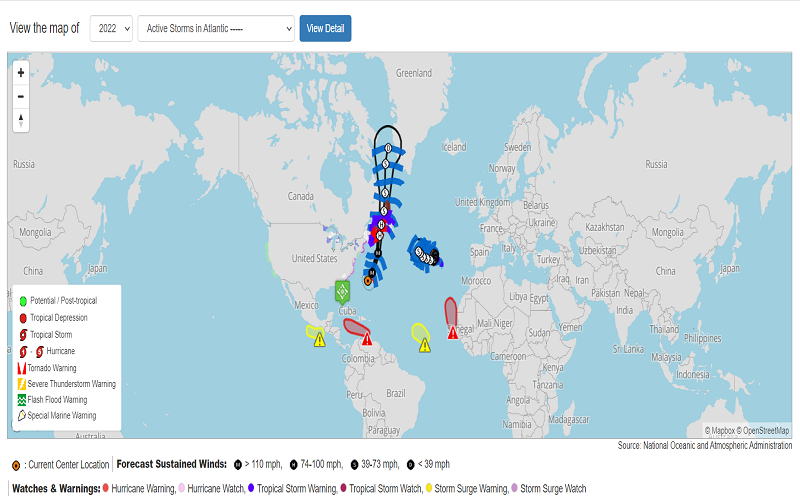
Although the source to track map activity is also NOAA here, but its graphical presentation and spaghetti model of hurricanes are easy to understand. Here are some appealing features of The Ledger hurricane tracker:
3. National Weather Service — Live Hurricane Tracker for Florida
If you want a real-time hurricane tracker for Florida, you must trust the National Wealth Service. It is a federal agency founded in 1870. NWS works with NOAA and 122 local WFOs to collect the most accurate weather information.
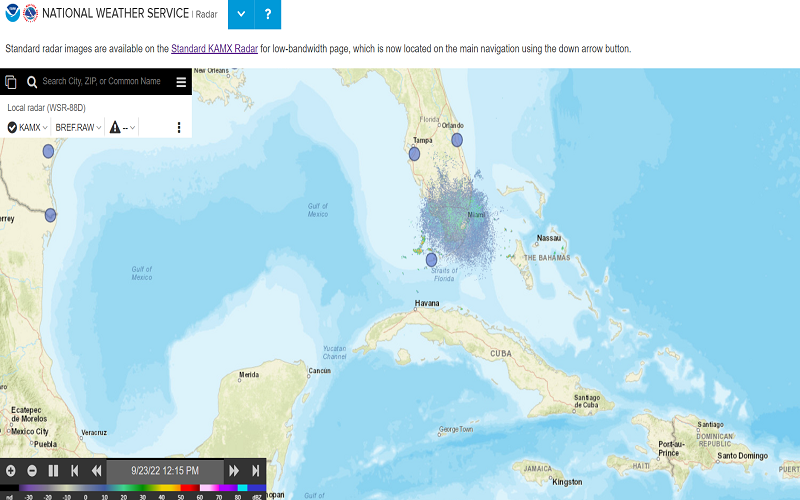
The following steps will help to track hurricanes in Florida with great accuracy:
AccuWeather — Website & App to Track Hurricanes for Florida
As it is quick to understand from the name AccuWeather is a media company that reports about weather. This America-based weather company was introduced in 1962, and since then, it has been providing authentic services to its users.

You can’t only benefit from its web version to track storms in Florida, but you can also download its application for more convenience. Here are the core properties of AccuWeather:
5. FPREN — FL Hurricane Tracker
The complete form of FPREN is Florida Public Radio Emergency Network, which works for emergency communication. In addition, you can get detailed real-time, weekly, and hourly weather updates on its official website.
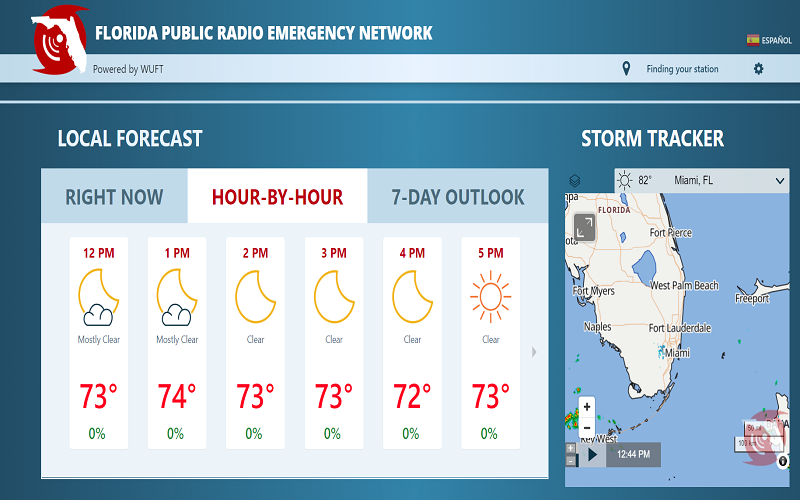
The best things about depending on FPREN to track hurricanes in Florida are here:
FAQs about Hurricanes in Florida
When is Hurricane Season in Florida?
Typically, Florida faces hurricanes for six months every year. However, hurricane season officially begins on June 1st and ends at the end of November. Sometimes, it also starts in mid-May.
What is the Peak Month of Hurricanes?
September is considered the peak month in this regard.
Which State of America has Faced the Most Hurricanes?
In the history of the United States, Florida has witnessed the most hurricanes.
What are the Worst Hurricanes to Hit Florida?
The Labor Day Hurricane, Hurricane Irma, Hurricane Andrew, Hurricane Michael, Hurricane Elsa, and Great Miami were the worst hurricanes in Florida’s history.
How to Prepare for Hurricane Season in Florida?
Here are some suggestions to be ready for hurricane season in Florida:
Must-Have Knowledge of Hurricanes
First of all, you must know about hurricanes. During a hurricane, winds are around 74 mph, and warnings are issued before 36 hours of the actual storm. So, you must know the basic things.
Follow Authentic Hurricane Trackers
You must know about helpful websites and applications for reliable and accurate forecasts. The best sites to track hurricanes in Florida are NOAA and NWS. You must keep an eye on their projections. You can even follow the Twitter handles or other Florida-based trackers’ social media accounts for timely updates.
Keep Hurricane Kits Ready
To deal with any situation, you must prepare your emergency kits. These hurricane emergency kits should include water, personal hygiene products, non-perishable food, batteries, flashlights, a medical kit, and matchboxes for three days. Also, don’t forget to save all of your necessary documents, banking cards, cash, and ID in a waterproof container.
Be Ready for Power Outages
Power outages are one of the hurricanes’ significant drawbacks. You should be physically and mentally ready for these kinds of situations. In these situations, you wouldn’t have gas, electricity, or internet, and you wouldn’t be able to use ATMs. Therefore, you must plan to survive in such conditions.
Secure Your Home
- You should also remember to secure your home. It’s better to cover your windows with wood or hurricane shutters.
- Trim all plants and nearby trees to overcome the loss.
- Clear all the drainages of your house.
- Shift all outdoor furniture in the home.
- Tape the glass windows and stay away from windows and doors to avoid any damage.
Indeed, our listed websites and applications will help you track Florida hurricanes. However, you must read our infographic below to understand hurricane patterns, duration, and map signs.
